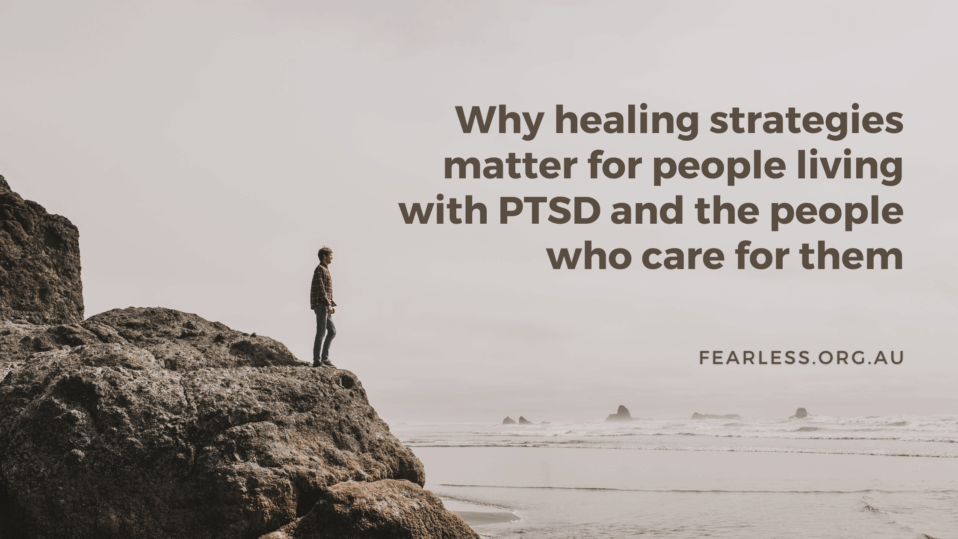Across Australia, many people live with the ongoing effects of post traumatic stress. Getting timely help can be difficult due to long wait times, the cost of appointments and the availability of qualified professionals, especially in regional areas. In many cases, families and carers are also unsure how to best support the person they care about.
FearLess recognises this gap and aims to connect people with reliable, easy-to-understand information about post traumatic stress and recovery. Everyone’s experience is different, but learning about common reactions and ways to cope can help people feel less alone and more in control while waiting for professional support.
What PTSD can look like
Post traumatic stress can follow a single traumatic event or develop over time through repeated exposure to distressing experiences. Common signs can include:
- Re-living the event through intrusive memories, dreams or flashbacks
- Heightened alertness, irritability, poor sleep or being easily startled
- Avoidance of reminders, places or people associated with the trauma
- Feeling detached from family, friends or everyday life
It can also affect the people closest to someone living with PTSD. Relationships may feel strained, and communication can become difficult. Understanding that these responses are part of the condition can help families approach the situation with empathy and patience.
Recognising other challenges
PTSD often occurs alongside other emotional challenges such as anxiety, depression or moral injury. These can make everyday life feel heavier and can slow recovery. Being aware of these overlapping experiences helps people recognise that seeking help for mental health is not a sign of weakness but a step toward stability and strength.
Ways to support recovery
Healing from trauma can take time, and there isn’t one path that works for everyone. Some simple, everyday strategies that people find helpful include:
- Gentle physical activity such as walking, stretching or yoga
- Spending time outdoors or connecting with nature
- Limiting alcohol, caffeine and high-sugar foods to support mood and sleep
- Practising mindfulness or grounding exercises
- Reaching out to trusted family, friends or community groups
For families and carers, small acts of understanding and consistency can make a difference. Listening without judgement, encouraging healthy routines and maintaining your own wellbeing all play a role in creating stability at home.
- Phoenix Australia – Trauma resources
- Black Dog Institute – Mental health information
- Carer Gateway – Support for carers
Staying connected
Healing doesn’t happen in isolation. Social connection, whether through community activities, peer groups or online forums, can ease feelings of isolation. FearLess encourages open conversations about PTSD so that people, families and carers know they are not alone and that recovery is possible with time, information and support.



Post a comment